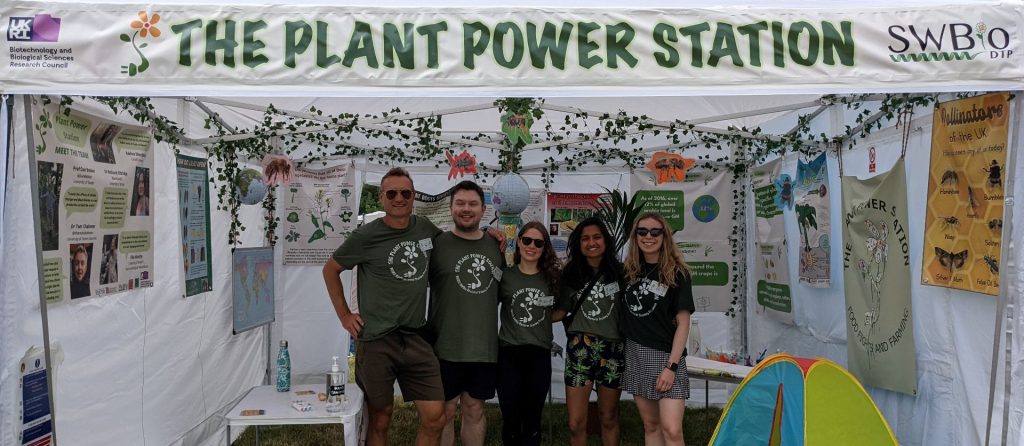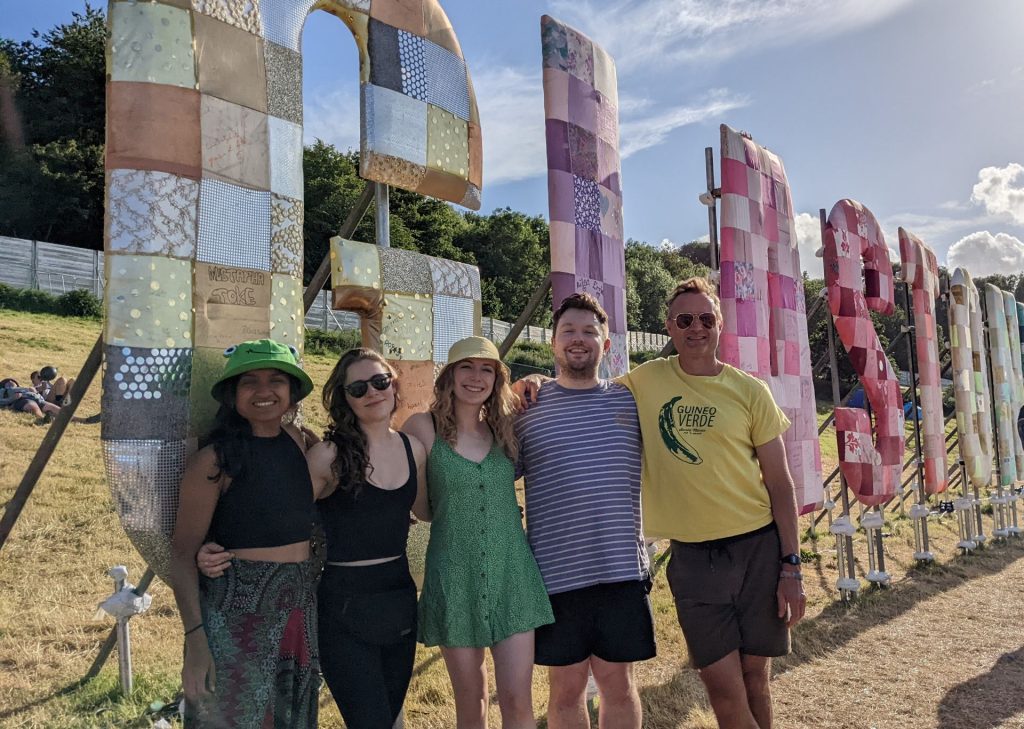The ‘Plant Power Station’ aimed to raise public awareness of the importance of plants, agriculture, pollinators, and sustainability, and ‘plugging yourself into a greener world’
The team headed by Prof Dan Bebber (Agriculture and Environment Research Theme Champion) involved students from across the universities of Bristol, Cardiff, Exeter, and Plymouth. There were three interactive games focused on the origins of food crops and their wild relatives, food carbon footprints and pollinators:
Game 1: Where does my food come from? The aim was to educate the public about where they think the wild ancestors of different fruit and vegetables (e.g. raspberries, watermelon and potato) originated. This not only challenged conventual wisdom (many surprised to discover apples originate from Kazakhstan and not the UK) but was an excellent way to connect our diet today to the needs of tomorrow. Ultimately, they wanted the public to understand that thinking about where the wild ancestors of crops originated will enable scientists to gain important insights about the type of environments these crops were originally adapted too and explore the wider genetic pool where wild relatives grow. This knowledge will be used to effectively engineer crop varieties that better tolerate the environmental challenges faced such as increased drought, emerging pests and diseases.
Game 2: What’s my ‘foodprint’? We often don’t consider that our food requires a vast number of inputs and infrastructure to get from the field to our table. The public was challenged to a quiz all about the carbon footprint (‘foodprint’) of their diet, the environmental impacts of their diet, and many random facts about our diet that they may have no considered before!
Game 3: Pollination Station: All about the variety of pollinators in the UK and lots of fun facts the public may be completely unaware of. For example, did you know the bumble bee Bombus polaris is the only bee species that can survive in the Arctic! This game sparked many interesting conversations – in fact, the team may have even learnt just as much as they educated the public about!
Dan also took to the stage with other researchers and science communicators from the BBC on the Science Future stage around food sustainability, engaging the public on his expertise around sustainable food choices such as the shift from meat to a plant-based diet, food miles, global food systems and farming practices.

Hear about the team’s experiences
Beth: “Us plant science nerds had an absolute blast engaging and discussing various important topics in plant science and climate change research to thousands people of all ages from a variety of different backgrounds”
Rakhee: ”I’m so grateful to SWBio for making this possible. I loved in particular changing a member of the public’s mind from really disliking GM crops due to articles she had read in the media, to leaving with a more balanced and informed view on them – it reminded me of the power we as scientists have to implement change in policy and campaign for better solutions.”
Prof Dan Bebber: “Glastonbury gave our team a unique opportunity to discuss our research interests with the public….. For me, it was great to meet farmers, conservationists and artists and learn from them, as well as discussing my work on climate change effects on agriculture”
Many conversations were had
Extremely positive feedback was received from many festival goers, with many returning to the ‘Plant Power Station’ multiple times! Conversations with festival goers included a:
- CountryFile researcher (about experience of women working in STEM)
- farmer and ecological consultant (about the lack of research into composting and producing biofuels from roadside waste)
- property developer (how to implement effective soil erosion prevention measures into the construction industry and agricultural policy)
- performance artist (interested in the intersection of science and art)
We look forward to returning in the future!

